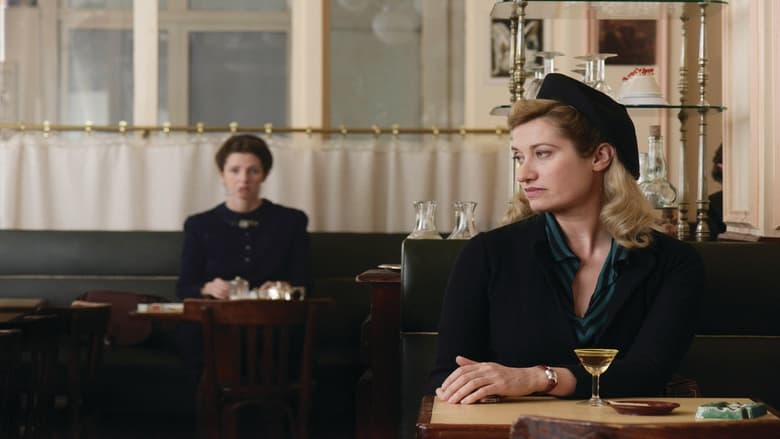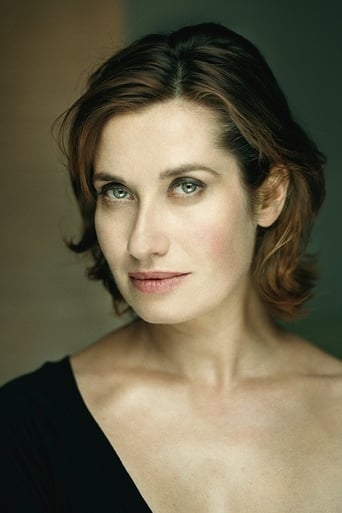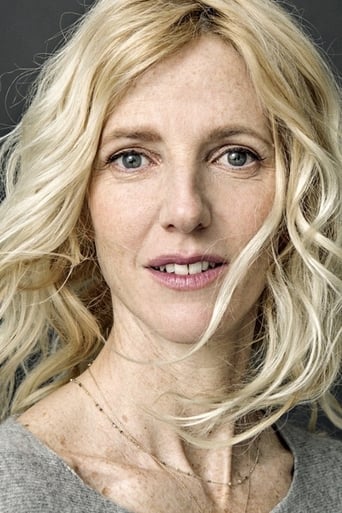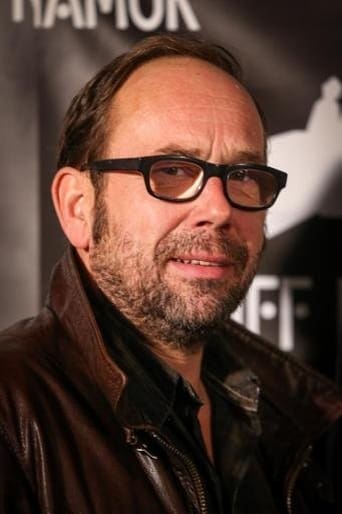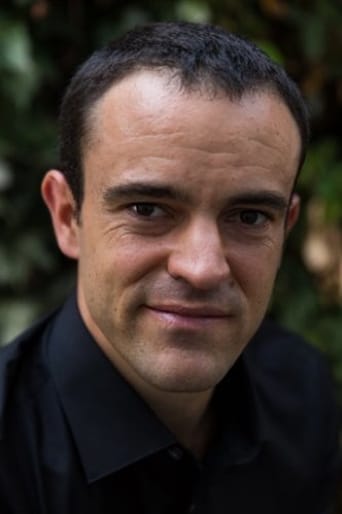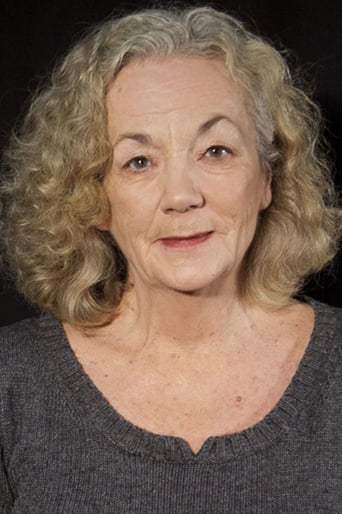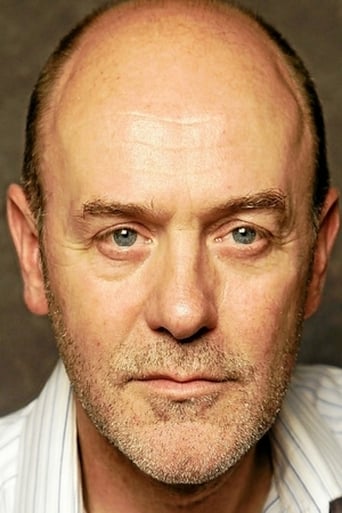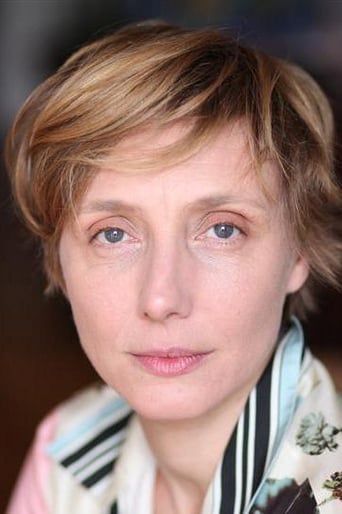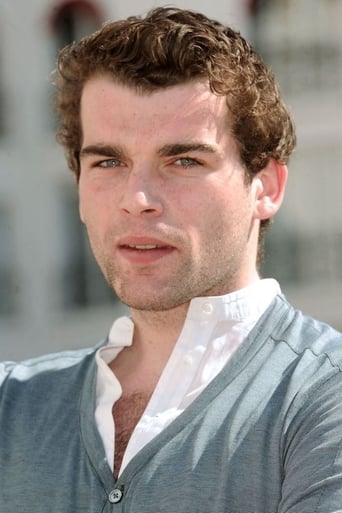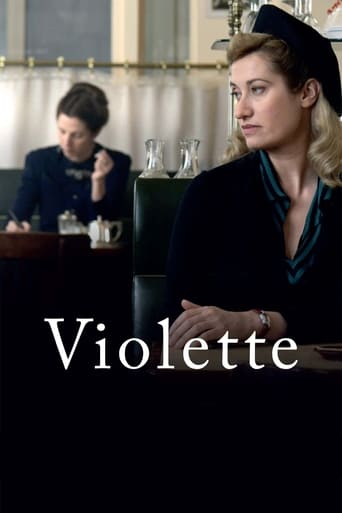
Born out of wedlock early in the last century, Violette Leduc meets Simone de Beauvoir in postwar Saint-Germain-des-Près. An intense lifelong relationship develops between the two women authors, based on Violette's quest for freedom through writing and on Simone's conviction that she holds in her hands the destiny of an extraordinary writer.
Reviews
Great Film overall
It’s not bad or unwatchable but despite the amplitude of the spectacle, the end result is underwhelming.
Blistering performances.
The best films of this genre always show a path and provide a takeaway for being a better person.
The beginning is great: Violette is living with Maurice Sachs in a Normandy backwater in 1942. With the war on, life is precarious for the budding writer; she is forced to go on the black market to deal in the essentials of life. Sachs obliges her to sit down and write about her childhood and youth, as a way to bring in some extra cash. Soon Sachs is off to Germany as a labourer (he hoped to ingratiate himself with the Nazis by hiding his Jewish past). Sachs dies, and Violette is off to Paris as soon as she can manage it. Soon she meets Simone de Beauvoir, Jean Genet and Jacques Guerin (who becomes her first publisher). She starts to travel, something a girl from a poor family usually doesn't get to do. Finally she becomes a member of the Gallimard stable of writers; fame and some fortune are hers at last.Emmanuelle Devos impressed me very much with her tenacity in bad times and her masochistic devotion to Beauvoir. Sandrine Kiberlain, reed-thin and erect of bearing, looked and sounded very much like Beauvoir. Olivier Py as the sleazy Sachs stole all his scenes.
As a student of irony it pleases me to imagine the two leading actresses - both beautiful in real life - competing on screen to see who could come across as the most plain of the two. They had no need to compete for acting honours for both are among the finest that French cinema has to offer and here both are at the the top of their considerable collective game. The director clearly has a penchant for bio-pics for it isn't all that long ago that he gave us Seraphine in which he coaxed yet another top-of-the-line performance from Yolande Moreau. Equally ironic is that supporting actor Olivier Gourmet, who has always had a strong facial resemblance to Eric Morecombe, does so more than ever, reminding English viewers of a beloved - and brilliant - English comedian in an exceptionally downbeat and sombre film. Though it's well over two hours of largely unrelieved doom and gloom it remains a superb portrait of two fine French writers in mid life. Highly recommended.
French actor, screenwriter and director Martin Provost's fifth feature film which he co-wrote with screenwriters Marc Abdelnour and René de Ceccaty, is inspired by the life of a French 20th century author. It premiered in the Special Presentations section at the 38th Toronto International Film Festival in 2013, was shot on locations in France and is a France-Belgium co-production which was produced by producers Miléna Poylo and Gilles Sacuto. It tells the story about a daughter and sister named Violette Leduc who was born in the late 1900s in Arras in the commune of Pas-de-Calais in Northern France, at that time derogatorily called a bastard, who lived with her mother named Berthe and grandmother named Fidéline, met a man named Ernest Dehous in 1913 and who had begun her initial education at collége Valenciennes when the First World War started. Distinctly and subtly directed by French filmmaker Martin Provost, this quietly paced and fictionalized reconstruction of real events which is narrated mostly from the main character's point of view, draws a heartrendingly humane portrayal of a French citizen whom in the early 1940s during the Second World War in Normandie, France, met a Jewish Roman Catholic writer named Maurice Sachs, as a 33-three-year-old wrote for the first edition of the magazine Pour Elle and the daily newspaper Paris-Soir and who after the liberation of France was introduced to a French novelist and playwright named Jean Genet and a French perfumer and collector named Jacques Guérin. While notable for its versatile and atmospheric milieu depictions, reverent cinematography by cinematographer Yves Cape, production design by production designer Thierry François and costume design by costume designer Madeline Fontaine, this character-driven and narrative-driven story about significant people in the history of French culture and a memorable person who got her first novel called "In the Prison of her Skin" published in 1946, depicts an internal study of character. This densely historic, at times humorous and conversational reminiscence which is set in France in the 20th century and where a boarding school student and alumni at Lycée Racine in Paris, France who in the mid-1960s met a French author named Françoise d'Eubonne and whose life was marred by the ... of being born, starts an invaluable friendship with a French 20th century thinker who was writing a book and who encourages her to go on writing and use her personal experiences, is impelled and reinforced by its cogent narrative structure, substantial character development, subtle continuity, use of music, comment by Madame Simone Ernestine Lucie Marie Bertrand de Beauvoir: "The way you see yourself has changed." and the majestic acting performances by French actresses Emmanuelle Devos and Sandrine Kiberlain. A reflectively biographical, eloquently literary and lyrically cinematographic narrative feature.
Narrates the psychological journey of Violette, born unloved, but ready to fend for herself by whatever means, to literary Parnassus and then back to her nightmarish self. Also the clash between two classes, upper middle and lower, like when Violette complains for being given Simone's 'leftovers' of her house when moving, or when Simone advices her to 'go somewhere -travel-', V. answers 'people like me don't do tourism'. Which gets one of the brightest replies by Mme De Beauvoir, mentioning her "lack of imagination". Maybe one default of this film and others of the genre is that sometimes dialogues are just too good, too literary and cerebral, too much of "for eternity". Specially Simone's, always bright, never trivial. Violette, on the contrary, is much more real, even when she repeats the same idea, moans, quarrels, just suffers or, occasionally, laughs, her character is much more 'alive' and believable.Simone is like a therapist to poor V., her "life advice" is always right, even if it could be said that she also says it to get rid of V. Photography is superb, specially Paris buildings and the female character's faces. Only perhaps marred by the "postcard images" of rural France. Music is also enthralling, particularly Avro Part's minimalism, obsessive as Violette. Maybe the score being so repetitive helps us focus on her life, that although seems full of episodes or chapters, they all end up in unrequited love. V. strives for recognition, some money to live and "not being alone", and gets probably only the first two. She repeats "Thins will always be the same", a trademark of depressive thought. Psychologically, Violette was the poster child of a perpetual victim, always asking for things her partners cannot or will not give, yet she is also manipulative as with Jacques Guérin and also with Simone d B. Simone treats V. with aloofness yet sometimes looks genuinely friendly with Violette, specially near the end. Yet, Simone speaks disparaging of Violette on at least one occasion, to Jacques: "Violette cannot be friends with anybody, I do it -taking care of her- out of duty". The script is full of contradictions like the aforementioned or how Violette rebounds from her bouts of depression, or the relationship with her mother - another great actress, totally believable even with an erratic plot-. But great films like this are not made to be analyzed, but enjoyed.Much as I am a fan of Emanuelle D., I feel she cannot play a woman that was famous for being ugly. Even the way she moves in the beginning at least, she is too much of a "rather nice woman" to play Violette. Sandrine, on the contrary, LOOKS like Simone d B. so much that, like with all good compositions –Kidman's Virginia Woolf on 'the Hours' comes to my mind- we will have the problem after having watched her performance of "always having the mental image of their performance when thinking about the author". Which is in a way, good proof that their acting is truer than life –Kiberlain and Kidman's-.Martin Provost directed the famous 'Séraphine' but I feel this film is so much better, or at least, so much closer to my heart. Maybe because even if both films deal with artistic genius and rather stubborn woman, both women also with some sort of mental malady, Séraphine seems to struggle in emptiness, whereas Violette has something concrete to fight against, be it the literary establishment that doesn't recognize her, censorship, her long string of bad lovers, her lack of love for herself, her poverty and insecurities. Violette struggles against something, is perpetually in motion, until she cracks.Séraphine is in a world inhabited by one person only: herself. Violette deals with the country as well as the city, another difference with Séraphine –country only-. My favourite character is probably Jean Genet's, a lovable gifted rascal with his husky voice and love of life. Unlike Woody Allen's film 'Midnight in Paris', this film enables us to "live through" the characters's perspective, with all their defaults and contradictions. I wouldn't have thought that there was such misery in Paris or that Violette would live in such shabby apartments. They all look brown, dirty and depressing. As I said décor and wardrobe are just incredible, you wonder how did they come along such wonderful dresses. Sometimes I just looked at Violette and SdB.'s clothing, and I know nothing about fashion. I agree with IMDb reviewer ferdinand1932 about the well crafter structure in layers of the script.This is a film not to be missed if you like French films, Paris and the literary world. A tad long perhaps but beautiful as you will rarely see.
Top Streaming Movies











